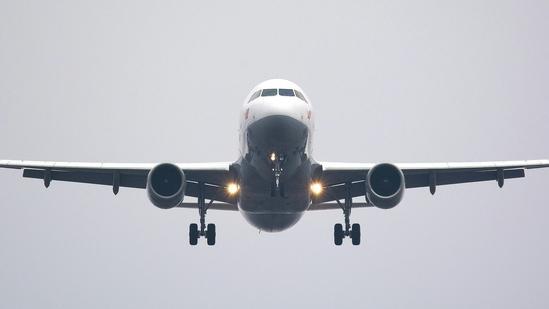
Indian Airlines to Spend ₹77 Cr Extra/Week as Pak Shuts Airspace: Report
The ongoing tensions between India and Pakistan have taken a toll on the aviation industry, with Pakistan recently closing its airspace for all Indian flights in response to India’s retaliation following the Pahalgam terror attack. The closure has led to a significant increase in flight time for overseas flights operating from north Indian cities, resulting in an estimated additional weekly expense of ₹77 crore.
To put this into perspective, let’s take a closer look at the impact of the airspace closure on Indian airlines. Flights from cities like Amritsar, Chandigarh, and Delhi, which previously took around 1 hour and 30 minutes to reach destinations like London, Dubai, and Bangkok, are now being forced to take a longer route, adding an extra 2-3 hours to their travel time.
According to a report by PTI, an analysis of several flights and rough calculations based on increased flight time showed an estimated ₹77-crore extra weekly expense for overseas flights operating from north Indian cities. This staggering figure translates to over ₹306 crore in additional monthly operational costs for the airlines.
The increased flight time has resulted in a significant rise in fuel consumption, maintenance costs, and other expenses. Airlines are now facing a double whammy of increased operational costs and reduced passenger numbers due to the ongoing tensions between the two countries.
The impact is not limited to just a few airlines. Major players like Air India, IndiGo, and SpiceJet, which operate a significant number of international flights from north India, are likely to be affected the most. The added expenses will not only increase their operational costs but also affect their bottom line.
The closure of the Pakistani airspace has also led to a surge in flight delays and cancellations. Many flights have been diverted to alternative routes, causing inconvenience to passengers. The situation has also led to a shortage of flight slots at major airports like Delhi and Mumbai, further exacerbating the problem.
The Indian government has been working to mitigate the impact of the airspace closure on the aviation industry. The Ministry of Civil Aviation has been in touch with airlines and other stakeholders to find a solution to the crisis. Meanwhile, airlines are working to adjust their schedules and routes to minimize the impact of the closure.
In the long run, the closure of the Pakistani airspace could have a significant impact on India’s aviation industry. The country relies heavily on international air travel, with millions of passengers flying in and out of the country every year. The added expenses and inconvenience caused by the airspace closure could lead to a decline in passenger numbers, affecting the overall growth of the industry.
In conclusion, the closure of the Pakistani airspace has resulted in a significant increase in operational costs for Indian airlines. The estimated additional weekly expense of ₹77 crore is a stark reminder of the impact of geopolitical tensions on the aviation industry. As the situation continues to unfold, it remains to be seen how airlines will adjust to the new reality and what measures the government will take to mitigate the impact on the industry.
Source: https://repository.inshorts.com/articles/en/PTI/dc38791d-02b0-4a35-80c6-8e435ff904a2






